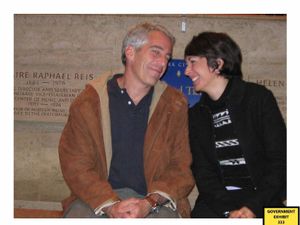‘Finally there is hope on the horizon’ – excitement over pancreatic cancer jab in Birmingham
Pancreatic cancer is one of the most deadly forms of cancer.

A cancer patient in Birmingham has become the first person in Europe to sign up to a ground-breaking clinical trial for a new pancreatic cancer vaccine.
Pancreatic cancer is one of the most deadly forms of cancer and experts said that the launch of the European arm of the trial means that “hope is on the horizon”.
Pancreatic Cancer UK said that the potential of the vaccine “cannot be understated” and it could become a “vital new weapon” against the disease.
The patient from the Midlands, who has not been named, was enrolled in the trial at Birmingham’s Queen Elizabeth Hospital (QEHB).
The vaccine is an individualised treatment, with each jab tailored to each patient.
It works by training the immune system to recognise and attack cancer cells.
Researchers hope that this could reduce the risk of cancer returning once the main tumour has been removed by surgery.
The jab, known as BNT122 and developed by BioNTech and Genentech, uses the same vaccine technology as the mRNA Covid vaccines, but in this case each jab is tailored to each patient.
The trial will recruit patients who have had surgery to remove pancreatic ductal adenocarcinoma – an extremely aggressive disease that accounts for 90% of all pancreatic cancers.
After surgery, samples of the patients’ tumour tissue and blood are sent to laboratories, where scientists can design and manufacture the vaccine.
People enrolled in the trial will either receive the jab alongside chemotherapy or chemotherapy alone after surgery – allowing researchers to compare the vaccine against the current standard treatment.

University Hospitals Birmingham NHS Foundation Trust (UHB) said that patients will receive “several doses of the investigational cancer vaccine intravenously over a period of time”.
Commenting on the news, Dr Chris Macdonald, head of research at Pancreatic Cancer UK, said: “For too long we have had so few treatment options for people with pancreatic cancer.
“Surgery is currently the only potential cure and yet, tragically, in 75% of cases the cancer reoccurs within a year. Finally, there is hope on the horizon.
“We are absolutely delighted that Queen Elizabeth Hospital Birmingham is the first site in Europe to enrol a patient to an individualised pancreatic cancer vaccine trial.
“We will be following the results with great interest, as the potential here cannot be understated.
“If this research proves successful, the vaccine could be a vital new weapon against the deadliest common cancer.”
According to the charity, pancreatic cancer has the lowest survival of all common cancers, with five-year survival less than 7%.
Around 10,000 people are diagnosed with the condition each each year in the UK.
Principal investigator of the trial, consultant medical oncologist and associate professor in oncology at the University of Birmingham and QEHB, Dr Shivan Sivakumar, said he finds it “humbling” that a patient in the Midlands has been able to enrol on to the trial, adding: “We are incredibly proud that Queen Elizabeth Hospital Birmingham is the first site in Europe to enrol a patient to this investigational pancreatic cancer vaccine trial.”
Jo Gray, head of research and development operations at UHB, said: “Through the National Institute for Health and Care Research (NIHR) Wellcome Trust Clinical Research Facility (CRF), we are able to provide expert care to patients receiving experimental therapies.
“Birmingham is the first site outside of North America to open and to enrol a patient onto this complex, early phase trial, that addresses an important need to identify better post-surgery treatments for pancreatic cancer.”
The news comes as Cancer Research UK (CRUK) announced that a new study had been launched to pinpoint the very moment the immune system recognises a tumour.
It is hoped that identifying this point will help medics one day be able to stop the spread of disease earlier than previously possible.
The charity has awarded a £1.5 million grant to the University of Cambridge, to be given over the next six years, to investigate how the immune system evolves, targets and kills cancer cells as tumours are developing.
It is hoped that by finding the trigger point of when the body starts to recognise cancerous cells it could one day lead to cancer being found earlier – when it is easier to treat – and improvements to treatments which harness the body’s immune system to kill cancer cells.
Study lead Dr Heather Machado, from the University of Cambridge’s Department of Pathology, said: “This research has the potential to give an entirely new perspective on the role of the immune system in cancer progression, findings that we hope to use to further improve lifesaving cancer immunotherapies.
“Most cancers are diagnosed years or decades after early tumour development, which can often be too late.
“Our methods will allow us to go back in the cancer’s timeline to understand the immune response in these early stages of cancer development.
“Beyond improving immunotherapies, we hope that this understanding helps us detect cancer earlier, at stages where survival rates are much higher.
“It is really exciting because we are using cutting-edge technology that is only available now and we are going to be able to discover how the immune system responds to tumours unlike we have ever seen before and that is potentially life-changing in terms of improving immunotherapies for better health and patient prognosis.”





